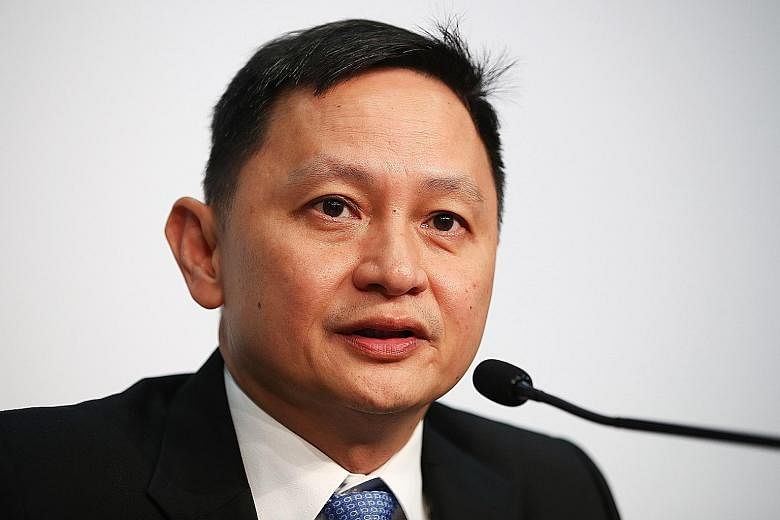NEW YORK • With the brewing trade battle between the US and China threatening to slow demand for air freight, the market is also facing pressure as demand gets in line with supply, according to the chief executive officer of Singapore Airlines (SIA).
"From a business perspective, we would like to see countries around the world to work together to grow the economy, rather than contributing to the slowdown," Mr Goh Choon Phong said in an interview with Bloomberg Television.
Last year "was a great year for cargo", Mr Goh said, as an unanticipated jump in demand outpaced capacity. "Even without these aspects of world-trade impact, you will be expecting people to put in capacity," he said at Bloomberg's headquarters in New York. "When capacity and demand are more balanced, you will then see lighter load into overall load factor. You will see pressure on yield."
Mr Goh's comments shed light on another potential threat to cargo rates as carriers brace themselves for a possible US-China trade war that could undermine a market in which demand has risen since the fourth quarter of 2016.
Asia-Pacific airlines, including Cathay Pacific Airways, Korean Air Lines and SIA control 37 per cent of the global air-freight market.
Meanwhile, Mr Goh said, SIA is well-positioned to contend with rising fuel costs.
"We have a fairly consistent hedging strategy basically to manage, not to speculate, but to manage the volatility of oil prices," he said in the interview broadcast yesterday in Singapore. "We're fairly well-hedged at the moment."
The airline has hedged 42.9 per cent of its fuel needs in the quarter ending this month at an average price of US$64 a barrel.
Last year, the company extended its hedging contracts to as long as five years, from a previous maximum of 24 months.
The carrier also is in discussions with the Singapore authorities over new fees to help fund the construction of a terminal and runway at Changi Airport.
"We want to work very closely with Changi to make sure that not just the immediate concerns, but the longer-term concerns of the airport, and the ecosystem and the hub in Singapore continue to be something that we can nurture and grow," Mr Goh said.
The authorities will impose next month an airport-development levy of $10.80 on passengers, while charges on airlines to land, park and use jet bridges will climb 1 per cent.
While US airlines cut back on amenities for passengers, Mr Goh said SIA is committed to keeping the high level of customer service for which Asian carriers are known.
"We would never retreat from our brand promises," he said.
BLOOMBERG

